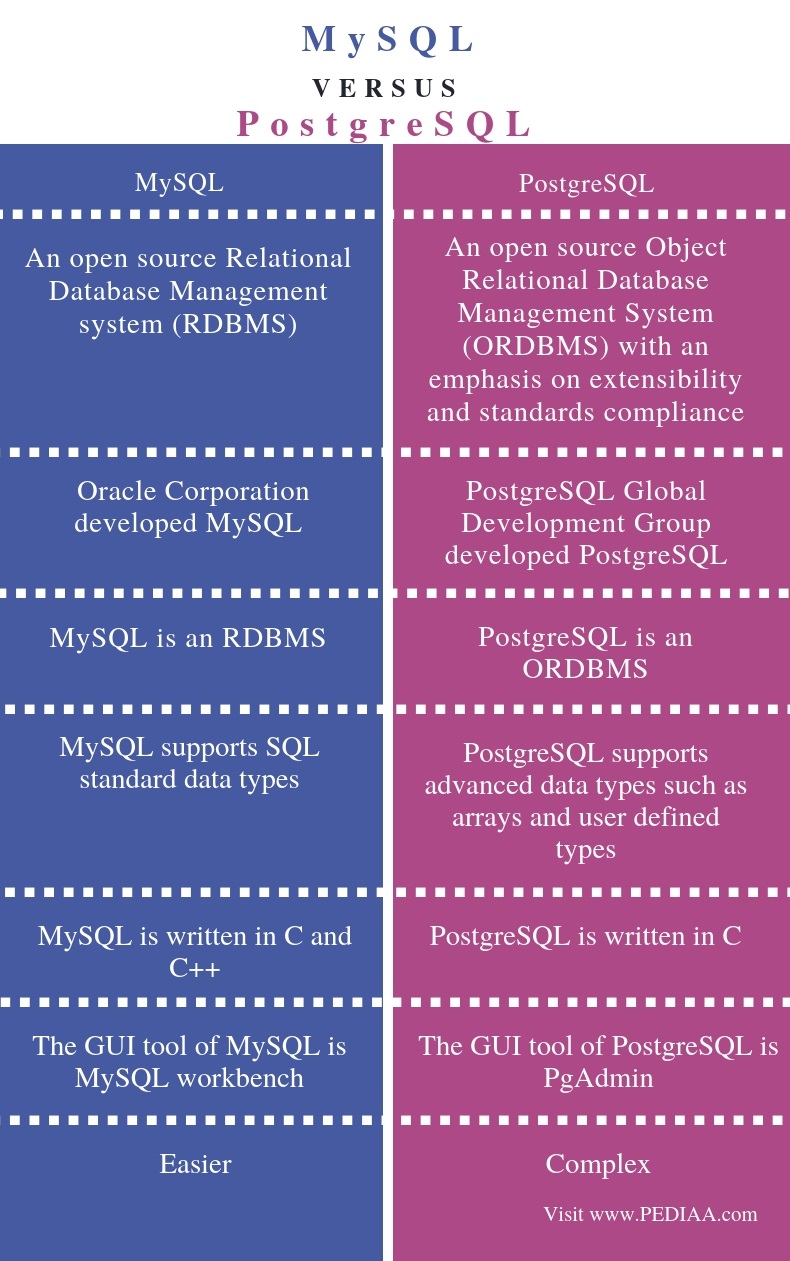


There are quite a few newer features available perhaps my favorite is a constraint that prevents overlapping date ranges with an "exclusion constraint" ( ). Note that Postgres, does have automated maintenance "autovacuum" enabled by default. Note that Postgres depends on the OS to do file caching, very unlike SQL Server. You'll have to set Postgresql to use reasonable amounts of memory the defaults are pretty low. Just as Oracle has performance tuning features SQL Server does not (multiple block/page sizes), SQL Server does have performance tuning features Postgres either does not have, or has hidden away in the usual *nix-style config files. Postgres "Tablespaces" can be used like "Filegroups" to specifically put certain objects on certain spindles (just as you could have a SQL Server Filegroup on Raidset A and another Filegroup on RaidsetB, you can do the same with Postgresql Tablespaces). Similarly, Postgresql has been doing catching up of its own (hot backup and other replication, role security, etc). SQL Server 2008 did a lot of catching up - the Date data type and filtered ("partial") indexes, for example, has been in Postgres for some time.
ORACLE VS SQL SERVER VS MYSQL VS POSTGRESQL FREE
Just as you could use osql to access SQL Server from the command line, it's much easier to use the free pgAdmin3 ( ) tool, like SSMS (though not as nice). Your future depends both on the features in your particular version of Postgres ( ), and the tool you use. can any one of you came accross of this technology ? how will be the future if we work on this ? I came to know that PostGreSQL is a RDBMS.


 0 kommentar(er)
0 kommentar(er)
